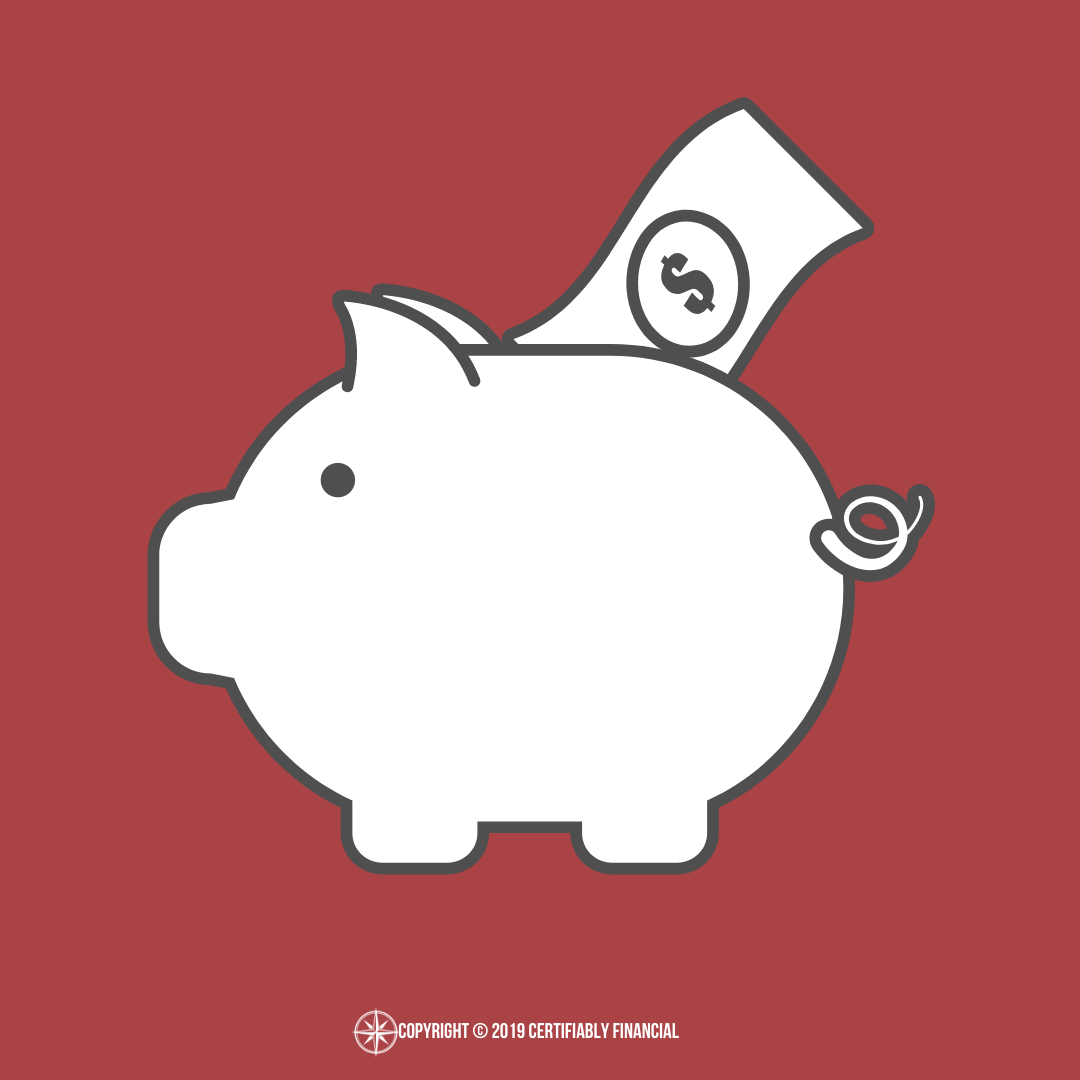Unfortunately, those of us in Indianapolis have a prime example right in our backyard of why it’s so important to have a properly funded emergency fund in place.
Financial Planning
Money Meeting
A concept that I’ve always really liked the idea of and that I’ve heard thrown around quite often lately on the financial podcasts that I listen to and financial blogs that I read is the “money meeting”, “money date”, or “money talk”, as some call it. No matter what you call it, I think it’s important to set aside time to have serious conversations about your finances with your spouse or significant other.
Halfway Through 2019
Somehow, we’re already halfway through the year. I have no idea how that happened, but it did and there are some things that we can do now to evaluate our progress towards our goals, and get ourselves back on track if we need to, that will help to set us up for success over the next 6 months to end the year strong.
Repost: Work Together
In March of this year I wrote an article titled Work Together which speaks about how married couples can optimize their financial lives through combining their personal finances. As I think about and prepare for my wedding this weekend, this is the topic that continues to come to the top of my mind to write about. Not only that, but one of my favorite podcasts published an episode around this topic as well. When I was gathering my ideas, I remembered that this is something I’ve written about before, but I didn’t realize how recently it had been. So, since this is top of mind for me this week, I thought I’d repost the article from March with some additional commentary.
Professional Process
I was fortunate enough to attend a mergers and acquisitions (M&A) seminar this week with a client who is considering selling his business. The speaker described two different processes for selling a business: the way that most people do it, or the common process, and the professional process. I think the professional process he described can be applied to many other areas of life than just selling a business.
Rule Of Thumb
There are a lot of financial rules of thumb that are thrown around in articles, on TV, and by so-called personal finance “experts”. What are some of these rules of thumb and what could be wrong with using them for your personal situation?
Outcome Vs Output
I don’t remember who it was now, but I recently saw a social media post from a fitness coach with a caption saying something along the lines of, “There is nothing I can do that will overcome what a client will not do.” This really resonated with me because it’s the exact same thing in financial planning.
Looking Rich
Do you think that you look rich? Do you think that the person who drives a brand-new car looks rich? What about the person who lives in the most expensive house in their neighborhood? Just because someone “looks” rich doesn’t mean that they are. In fact, someone who “looks rich” because of the car that they drive, the house that they own, or the vacations that they take is probably actually not wealthy.
2019 Financial Spring Cleaning
4 minute read
I hope that during your spring cleaning process you take some time to clean up your finances. Just as with your home, a couple of hours of dedicated work on your personal finances can go along way. Although I wouldn’t wait a year to revisit it; a monthly check-in would be much better.
Here are some things you should consider for your financial spring cleaning:
Organize Your Documents
If you’re like most people, you probably don’t even know all of the financial accounts that you have. You have a stack of statements but haven’t opened half of them because you don’t want to take the time to understand what’s inside.
Developing a process to organize your financial documents can make your life easier and help you become more aware of your personal finances. You can use a folder structure on your computer or in a cloud storage system, or even use a physical filing cabinet. Some documents that you may want to consider having in your organizer include the following: tax returns, life insurance policies, other insurance policies, estate planning documents, end of year account statements.
Get rid of what you don’t need. You probably don’t need every single account statement you have ever received. If you want something to compare to, then just keep the end of year statements. You also don’t need all of those informational documents that you’ve received and continue to hold onto.
Organize Your Account Logins
Even if you don’t want to login and look at your account, it still may be worth setting up login information so that someone doesn’t fraudulently do it for you. If you already have all of your login information for all of your accounts, then now might be a good time to update the passwords – especially if multiple accounts use the same password.
Make sure that you store your login information in a secure place. (That sheet on computer paper on your desk isn’t cutting it.) It may be wise to let someone who you trust know where the information is stored and how to access it if something were to happen to you.
Update Beneficiaries
While you’re updating your login information, you should check and make sure that the beneficiaries on your financial accounts and life insurance policies are up-to-date. This will relieve a lot of stress and heartache for your loved ones if something were to happen to you.
Net Worth
Now that you’ve got all of your financial information organized you can create a net worth statement that will help you get a better understanding of your current financial situation as well as help you to track your progress each month.
Budget
Tell your money what you want it to do for you. I want you to change your mindset about budgeting – you shouldn’t see it as the dreaded “b” word. A budget is a way to make sure that your money is working for you how you want it to and helping you reach your goals.
Wile you’re doing this you can make a list of all of the subscription-based services that you pay for each month automatically without you having to actually make a payment. Out of sight, out of mind – sometimes people pay for services that they never actually use but they keep paying for them because it’s easier than canceling. Get rid of those subscriptions that you don’t really need and use that money for something that’s more important to you.
Increase Your Retirement Savings
Even increasing your savings by 1% each year can make a significant impact over the long run. You’ll probably not even notice a change this small in your take-home pay.
Increase High Interest Rate Debt Payments
If you have high interest rate debt such as credit card balances now may be a good time to increase your monthly payments so that you’re not continuing to pay steep interest charges into the considerable future.
Shop Around
When’s the last time you checked to see if you’re paying too much for insurance? You may be able to save money on your homeowner’s and auto policies by using an independent insurance agent who is able to provide you with quotes from multiple different insurance companies rather than using an agent who works for a big name company where they’re only able to provide quotes from the company that they work for.
Credit Report
Now is a good time to pull a free credit report from one of the three credit reporting bureaus and make sure that nothing looks out of place.
Set Goals
Set goals for what you want your money to do for you the rest of 2019: travel, save X amount, increase your net worth by X amount, save for a down payment, buy a new car, etc. No matter what your goals are, make sure that you write them down and put a date on them so that you’re more likely to reach them. This includes setting frequent check-ins to evaluate your progress.
Financial spring cleaning can be a great exercise to help you get on track, evaluate where you are, and create a clear path forward for what you want your financial resources to accomplish for you.
Details Matter
4 minute read
I’m passionate about financial planning because it’s a profession that allows me to put my skills to work helping others in an area of life that most people can use help. Although I know I stray from this line of thought often, I was raised to always try to put others first and think of them before considering my own wants and needs. Unfortunately, it seems that there are many others in the financial services industry who consider their own wants and needs before thinking of their clients.
Don’t Be Left In The Dark
The reason I’m writing this is due to two separate situations that I’ve been made aware of recently. One of the situations is something that someone I work with discovered when combing through a new client’s information from their previous financial advisor and one is something that a friend found when exploring a new client’s financial information from a former advisor. Both show how easy it is for investors to be left in the dark if they’re not working with someone trustworthy.
The first situation that I mentioned above is something that my boss found when reviewing a new client’s Indiana CollegeChoice 529 Savings Plans that were setup for them by a financial advisor who works for a financial services firm with a household name. It’s great that the clients have these plans in place and are already saving for college for their young children, but this was an “Advisor” plan rather than a “Direct” plan. This means that the financial advisor set up the plan for the clients and managed the investments within the plan rather than the client setting up the plan themselves and choosing the investments.
The clients were being charged 4.75% on every single deposit they made into the accounts, and that was after receiving a discount from the 5.5% othey were being charged prior to account hitting a certain balance. What a deal.
That’s insane. They had no idea.
This is something that we don’t even charge for at the company that I work at because there isn’t very much value that we can add to managing 529s. We help clients setup a “Direct” account and tell them which investment to choose. There’s not a whole lot more to a 529 than that although the example above seems to indicate that there are other financial services firms that think so.
Free Account
The second situation is one that one of my friends came across when reviewing information for a prospective client. The client’s current financial advisor told her that her account is free with no annual fee. (Remember our discussion about free above?)
Notice how the message was framed to her. “The account is free with no annual fee.”
Technically, she isn’t paying an annual fee for the account. What she is paying is the up to 5.75% up-front commission on all of the mutual funds she purchases within the account in addition to the ongoing expense ratios on the mutual funds, one of which is 5.5%. Most are at least 1.2%.
I can imagine where most of the money being made off of that “free” account is going.
Know Who You’re Working With
Just because your friend or family member got a new job as a financial advisor where they’re required to sell products and they start with pitching them to their friends and family doesn’t mean that you have to, or should, work with them. Isn’t it kind of scary how easy it is for someone with no financial experience to get a position like that which could have significance long-term consequences on those they’re selling to?
I’m very fortunate to have a degree in financial planning and to have learned about all aspects of the financial services industry. Most who work within the industry haven’t been fortunate enough to experience this type of education and be exposed to all the different sides of the industry and how each is compensated.
I believe that some people who are selling these awful financial products to others genuinely believe that they’re doing a great job helping them and that they’re doing something good for the client. I think a lot of financial salespeople don’t even know that there’s another side of the industry and that there’s an option to always work as a fiduciary in the client’s best interest. They’ve simply been told that they have an opportunity for a solid job with high income potential and that’s the extent of their knowledge on the industry.
Unfortunately, there are those who know about all sides of the industry and know that there are better options for their clients but are more motivated by continuing to line their own pockets. Oftentimes people who works at these types of firms are simply salespeople who passed basic level securities exams to keep them out of prison, not educate them on financial planning. Many have no background or previous experience in finance or financial planning. It may be harsh, but it’s true.
Eliminate Conflicts of Interest
Stories like those above demonstrate exactly why I chose to work at a fee-only, independent RIA and not sell products or be paid on commission. Commission-based advisors inherently operate under a conflict of interest. No matter what product is best for your situation, they’re incentivized to sell you the one that makes them the most money, pays their mortgage, and feeds their family.
Maybe now you’re even more paranoid to work with a financial planner because of these stories. Or (hopefully) you’re more motivated to audit your current financial professional’s recommendations and the things that you’ve implemented in your own financial life. Either way, here are some things that you can do to help make sure that you’re working with someone who is obligated to always work in your best interest. I’ll repeat a few of them below.
- Work with a CFP professional
- Work with a NAPFA-Registered Financial Advisor
- Ask them if they act as a fiduciary for you at all times










